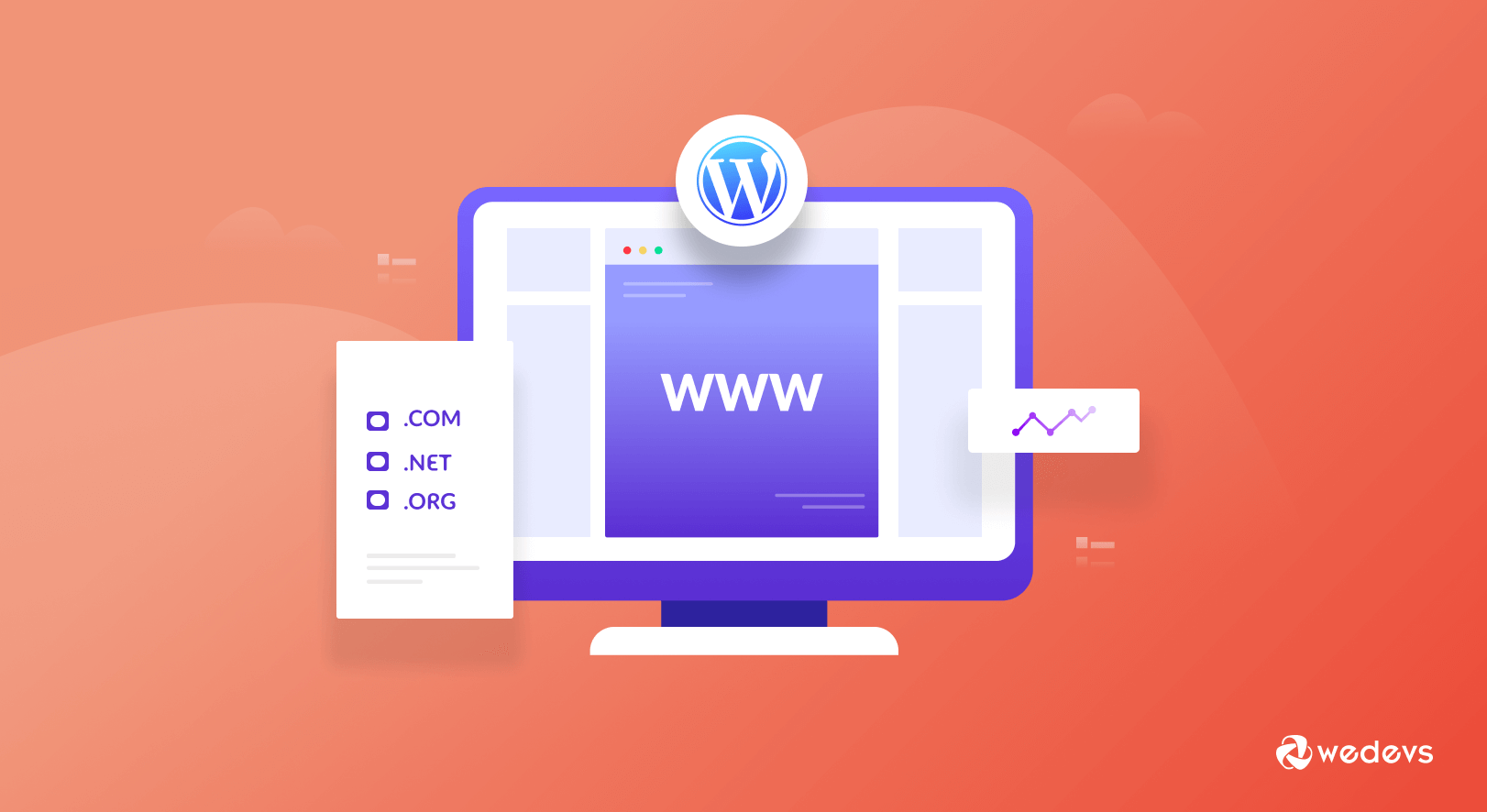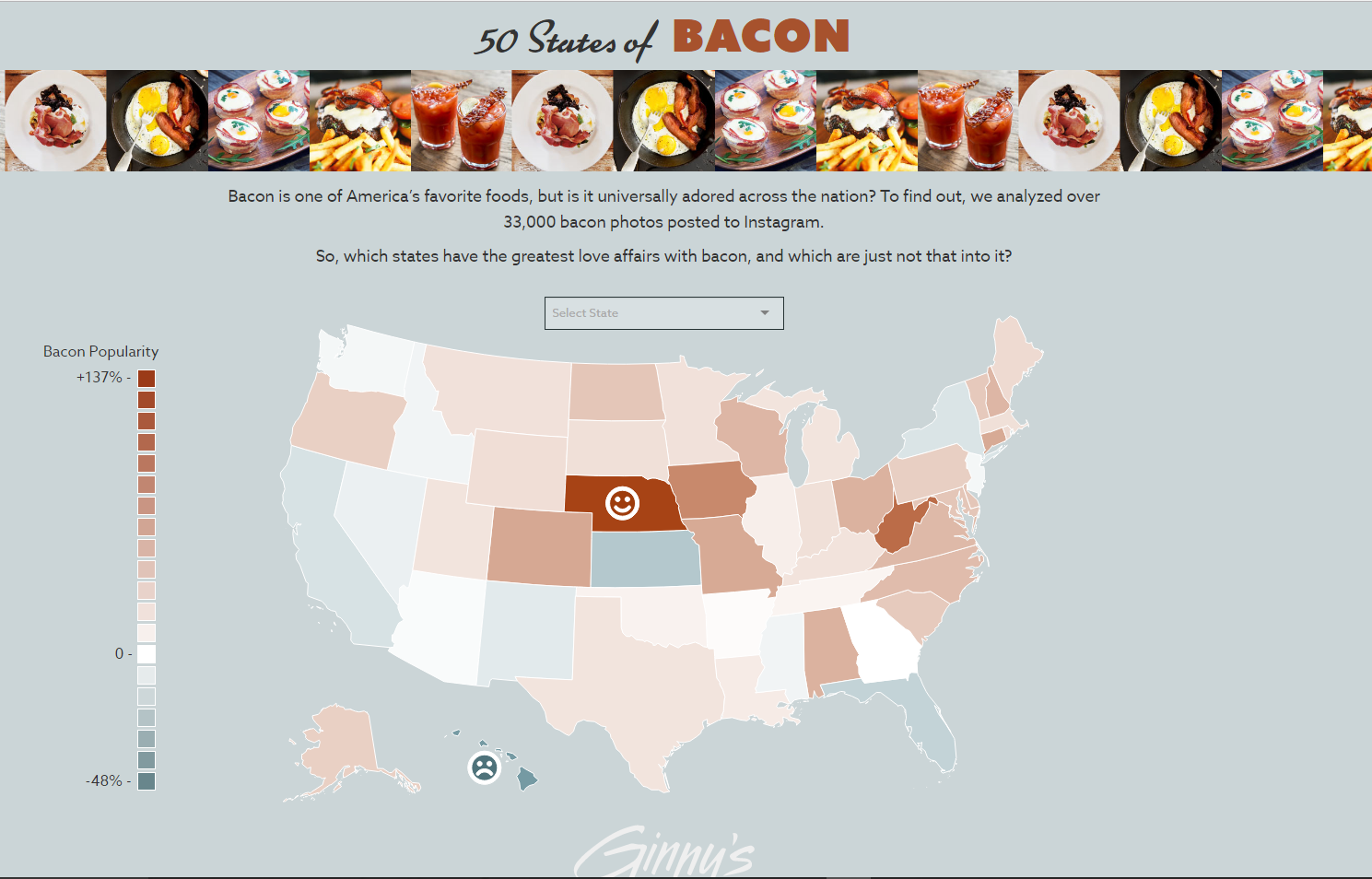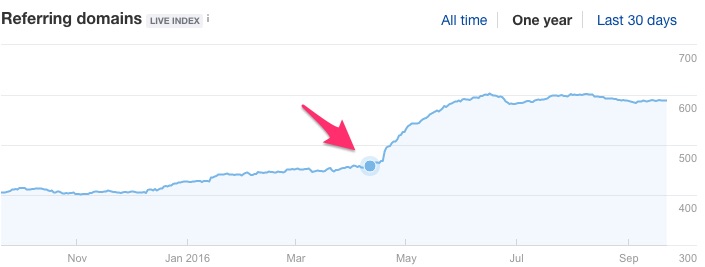
7+ Ways on How to Improve Domain Authority of Your Website
Google uses more than 200 ranking factors in its algorithm. These ranking factors combined decide which content should be on top when you search for a specific keyword, as well, which should not rank at all. Now, is it possible to individually measure the performance of your website for each and every ranking factor?
The answer is – No, you can not!
And you don't have to. That's because domain authority can help you measure the performance of your site based on the key ranking factors. The more you can score on Domain Authority, the better. This article will show you a definitive approach – how to improve domain authority of a WordPress website.
Domain Authority Explained

Domain Authority is a metric to examine how your site is performing on the basis of Google ranking factors. This is a metric created by the company behind one of the best SEO tools, Moz. Moz Domain Authority (DA) mainly measures the number of internal links, backlinks of a site, and their quality. According to Moz,
Domain Authority (DA) is a search engine ranking score developed by Moz that predicts how likely a website is to rank in search engine result pages (SERPs). Domain Authority scores range from one to 100, with higher scores corresponding to greater likelihood of ranking.
But does that mean Domain Authority is a ranking factor for Google?
Is Domain Authority a Ranking Factor

It's easy to think that Domain Authority is a factor that impacts the ranking of your website. But Google actually does not consider Domain Authority to be a ranking factor. According to Google's Senior Webmaster Trends Analyst, John Mueller, Google does not even have a domain authority metric.
In general, Google doesn’t evaluate a site’s authority. So it’s not something where we would give you a score on authority and say this is the general score for authority on your website. That’s not something we would be applying here. – John Mueller
So, if you want to improve domain authority by any means, solely for the reason of ranking your posts, that would not be a good idea. However, the domain authority of a site does reflect how many sites trust your site to refer you for information. As the backlinks increase, it generally shows the improvement of a site in a specific niche.
Another thing that DA helps you with is choosing keywords that you should target. For example, if all the search results of a keyword hold an average DA of 90+, while you have a DA of 20, you'd better not target that keyword. As is most likely, you will fail to rank on the first page.
Experts believe Domain Authority is one of the best ways to measure the trustworthiness of a site, and there's no downside to improving your Domain Authority. So if you're wondering how to improve the domain authority of your WordPress website, you're on the right track.
Furthermore, you can also think of Domain Authority as a helpful guide. It does not show how Google ranks your site. But it shows how strong your site looks compared to others in your niche. That is why many SEO experts still use it as an important indicator.
7 Easy Ways to Improve Domain Authority of a WordPress Website

Whether domain authority directly impacts search engine results or not, it certainly is an indicator of your site getting a good reputation and trust from users. So how can you improve the domain authority of a WordPress website? Here are some proven ways.
1. Build High-Quality Backlinks
Backlinks are one of the most important measures to evaluate your website's authority. But are we talking about links from any site? Not really. In order to build domain authority, you need backlinks from high-authority sites. But keep in mind that the backlink quality also depends on the site's relevancy. Relevant link building using an efficient outreach program.
2. Remove Bad Links
If you want to increase your domain authority, you can't afford a spam score. Although Google does not count the overall spam score for a site, it also does not respect a site for having limitless links from low-quality spam sites. You can disavow backlinks from spammy or low-quality sites to keep your spam score low. Which, in turn, will help increase your domain authority.
3. Don't Link Out to Low-Relevance Sites
Similar to disavowing low-quality backlinks, you should also avoid linking out to low-quality and irrelevant sites. This helps your site build a good reputation and improve your authority score. Doing an audit of your site's outbound links can be useful to control low-quality outbound links and broken links as well.

4. Do Internal Linking
We all know that internal linking helps search engines crawl our site better. But that is not everything it does. More internal linking within your website creates a hierarchy of your content and helps you become an authority in your field.
That is because Google closely monitors how much (high-quality) content you have in a niche and prioritizes you if it thinks you are an authority in your field with a lot of insightful content. Moreover, internal linking is very easy on WordPress, as if you click on the link icon, select a text inside the editor, it will show you a relevant article to link to.
5. Do Topical Mapping
Topical mapping is a part of semantic SEO. It helps you collect all possible topics that matter to your niche. Then you sort them into main topics, subtopics, and supporting ideas. This structure shows search engines that your site has deep knowledge in your area. Google rewards websites that cover a topic fully. A solid topical map also helps you avoid duplicate ideas and weak content.
6. Optimize Keywords

Keyword optimization can make your pages easy to understand for both users and search engines. You should place your main keyword in the title, URL, and first paragraph. Add related keywords, long-tail keywords, and semantic terms inside the body. shows that pages with proper on-page optimization have more chances to appear in the top 10 search results.
But avoid keyword stuffing because it makes your writing unnatural. A good balance is enough to help you rank higher, improve user experience, and build stronger credibility in your niche.
7. Regularly Update Old and Thin Content

Search engines do not want to show outdated or incomplete information. If you refresh your old blog posts every 6 to 12 months, you can increase your traffic without creating new content. Many site owners see up to 20–60% more traffic after updating old articles. Add new statistics, rewrite weak paragraphs, include new examples, and remove outdated parts.
Thin content (very short or low-value content) also hurts your domain authority. Expanding these pages with helpful details makes your site more valuable. This boosts your authority score and gives your users a better reading experience. Learn how to update old blog posts.
8. Use the Power of Guest Posts
Guest posts are as important as ever to increase the number of backlinks. Using the power of guest posts, you can create a varied link list. There is no other way as good as a guest post to make a prolific link profile. You can enable guest posting on WordPress very easily.
9. Improve Website's User Experience
Google is betting heavily on-page experience. The latest ranking factors, which are known as Core Web Vitals, are of huge importance to Google. Core web vitals are there to make sure that users do get a good experience while visiting your site. As Google's John Mueller recently said in a hangout –
If, for example, you have something that is on a financial topic and people come to you and say “well your information is okay but it’s presented in a way that looks very amateurish,” — then that could reflect how your website is perceived. And in the long run could reflect something that is visible in search as well.
As you can see, you need to make your website informative, fast and make sure it is good-looking at the same time. You need to act now, as Core Web Vitals have already been released as a ranking factor. But as a WordPress website owner, you don't have to worry much about this, as there are already great themes that will help you improve your Core Web Vitals score.
Domain Authority vs Page Authority – What's the Difference

We see people often get confused between domain authority and page authority. But they are, in fact, they can never be any more different.
Domain Authority (DA) is a metric to predict the chance of a website ranking on Google compared to other websites that are already ranked. A good domain authority means your pages have a high chance of getting ranked when fighting for a keyword. Domain authority depends on a couple of ranking factors, but gives special importance to a number of good-quality backlinks.
Page Authority (PA), on the other hand, is a metric that helps you to predict the chance of a specific page getting ranked on search engines. Page Authority depends on keyword optimization, coding structure of the page, backlinks, and, most importantly, the content quality.
What a Better Domain Authority Can Offer You

We know how to improve domain authority and how it helps us rank. But is that it? Or is there any other benefit to having a great domain authority score?
The answer is, getting ranked is not the only positive that comes with high domain authority. Domain authority also helps you in other areas. Here are some ways domain authority can help you out.
- Trustworthiness: On the way to achieving better domain authority, you will have to provide quality content and get backlinks from top sites. This will make your site seem trustworthy to users, so recurring website visitors will increase. That will also help you become a thought leader in your industry. You will also get more direct and branded traffic as people trust you.
- Opportunity to Sell More: If you sell products (virtual or physical) on your website, the impact of domain authority can be invaluable. It will increase your sales by many folds. Even if you don't sell a product, a high authority site will give you an opportunity to launch a product and sell to your visitors.
- Affiliate Opportunity: Online and offline product owners often seek websites with high authority to promote their products. With high authority, you can attract such product owners. You can then promote their product and earn solid revenue through commissions.
- Guest Post: Everyone needs links. With high authority, you will get more and more opportunities to share links with other websites through guest posts. You can either charge a certain amount of money or get a backlink in exchange from an equal or higher authority website.
- Advertisement: A Higher authority will also bring you more chances of advertisement. As a trustworthy and high authority site, advertisers will love to place an ad on your website. Ads can also help you generate a good amount of revenue.
How to Check Domain Authority

After all the planning, process, and application, you might be wondering how to check the domain authority of your website. Well, there are several websites to check the authority of your website. While Moz is the one to introduce this term, many other SEO tools have also built tools to measure the authority of a website. Depending on the SEO tool, it is also named differently.
Here are a couple of tools that you can use to check your domain authority.
- Moz: As we have informed you, Moz is the tool to introduce the metrics Domain Authority. The domain authority checker offered by Moz is the most respected one to date. It is also free to use.
- Ahrefs: Popular SEO tool Ahrefs also offers a tool to measure domain authority. They call their authority score Domain Rating or DR. The higher the DR, the higher the authority of the website is.
- SEMrush: SEMrush is another popular SEO tool that offers authority checkers. Like the two above, it is also offered for free.
Apart from these, you can also check domain authority from SEO tools like Majestic and THEHOTH.
Case Study: How One Great Idea Helped Ginny's to Increase Domain Authority by 7 Points

We want to inspire you with a case study of Ginny's to show how they improved their domain authority with a single content. This particular marketing campaign was done by Distilled, a digital marketing company, for their client Ginny's to improve the domain authority.
As Ginny's was an eCommerce site, it was hard to get incoming links for the site, which was preventing the site from achieving a higher DA and more traffic. So they planned for a campaign that would allow Ginny's to get backlinks without any cost involved. The campaign followed a pretty scrutinized process. Below is the way they went ahead with their campaign –
Ideation > Validation > Pitching > Gathering Idea > Design > Development > Copy > Testing > Promotion > Launch > Push
They came up with the idea to create a WordPress webpage where there will be an interactive map of which state loves Bacon the most. As one of the most popular foods in the USA, it was sure to get some organic traction. You can click on the state, and the map will show you the popularity of Bacon in that state compared to the US average. And the data was collected from more than 33,000 photos, uploaded from the United States with the hashtag #Bacon.
This got viral very soon and was shared by the Twitter channels of Mashable, US News, Daily Dot, Eater & AOL Lifestyle. And you can just guess about the social media posts from common users, right? But did all this virality help Ginny's to reach their target? Yes, Ginny's was able to increase their domain authority by 7%, thanks to getting a lot of incoming links to their website for this creative campaign.

Now, are we saying you should be relying on one single content to increase your domain authority? No. That is because it is not always possible to predict the success of a campaign beforehand. So you have to keep excelling with your marketing strategy and coming up with great content and campaign ideas to increase your domain authority.
Also, if you're a bacon lover (who isn't?), check out the final project that Ginny's came up with – 50 States of Bacon.
Final Thoughts
The idea of improving domain authority sounds very exciting. However, it takes a lot of consistent effort to do so. Better domain authority makes sure that you have a site that both the users and search engines trust. But not trying in the right way can hamper the growth of your site.
That is why our objective for this blog was to show you 7 effective ways to improve your domain authority. Also, we have talked about how you can measure your domain authority, the benefits that come with better domain authority, and also a nice little case study. We hope this blog helps you streamline your marketing efforts to improve the domain authority of your WordPress website.
If you have any questions regarding domain authority, feel free to comment below.